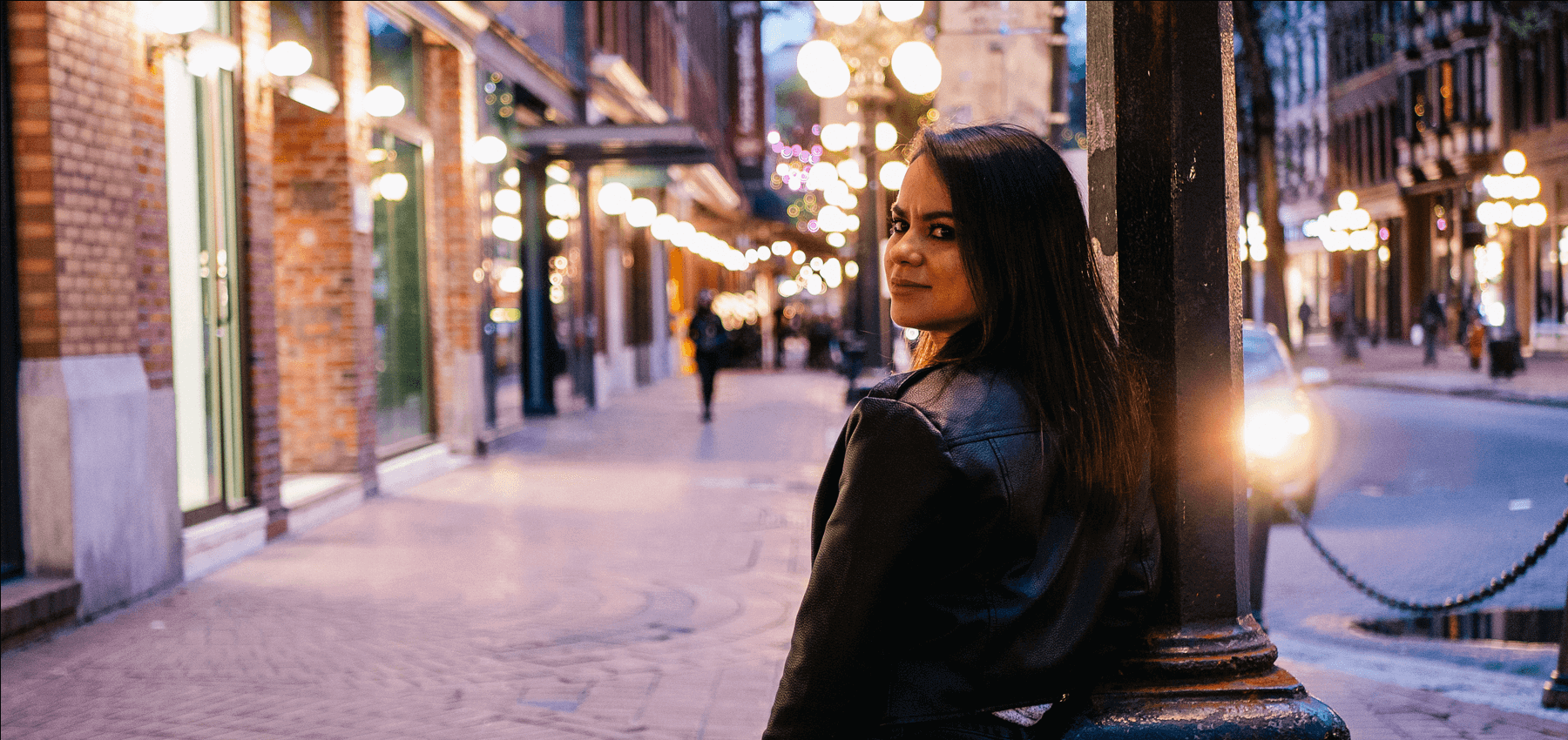As you plan your move to Canada, Vancouver and Toronto may be on your shortlist of potential cities to live in. Most newcomers to Canada are drawn to metropolitan hubs since they offer a good quality of life, well-established job markets, cultural diversity, and inclusive environments.
Often, smaller cities close to these metropolitan centres gain popularity among newcomers as well, since they offer similar advantages and employment opportunities, but with a significantly lower cost of living. Greater Vancouver, which encompasses Vancouver and its surrounding cities, is a cosmopolitan region that draws newcomers from across the world. In this article, we cover various aspects of living in Greater Vancouver as a newcomer, including the region’s weather, culture, job market, transit system, and more.
In this article:
- About Greater Vancouver
- Weather in Greater Vancouver
- Greater Vancouver’s culture and languages
- The job market in Greater Vancouver
- Renting accommodation in Greater Vancouver
- Transportation in Greater Vancouver
- The education system in Greater Vancouver
- Health care in Greater Vancouver
- Why live in Greater Vancouver as a newcomer?
About Greater Vancouver
Located in the province of British Columbia, Greater Vancouver is Canada’s third-largest urban centre and, consequently, a popular destination for newcomers moving to Canada.
Also known as Metro Vancouver, the Greater Vancouver region comprises the city of Vancouver, together with the nearby regions of Burnaby, Richmond, Surrey, Delta, Langley, North Vancouver, West Vancouver, and other smaller cities.
It covers an area of 2,878.93 square kilometres and has a population of over 2,642,825 (2021 census). In comparison, the city of Vancouver is only 115 square kilometres in size, with a population of just over 618,000.
Known for its natural beauty, the Greater Vancouver area is bound by the Pacific Ocean to the west and is home to numerous beautiful beaches, mountain ranges, and forest trails.
Weather in Greater Vancouver
Given its proximity to the Pacific Ocean, the weather in Greater Vancouver is milder than many other Canadian cities. The Rocky Mountains shield the region from cold Arctic winds, protecting it from the harsh winter weather that sweeps over the rest of Canada.
The average winter temperatures range between 1℃ and 8℃ with occasional snowfall. In the summer months, the average maximum temperature remains around 22℃. Although it rains throughout the year in Greater Vancouver, winters can be particularly wet and foggy.
Greater Vancouver’s culture and languages
Greater Vancouver is consistently rated one of the best cities in the world to live in. Over the years, it has attracted newcomers from all over the world and become a melting pot of cultures and traditions.
According to the 2016 census, first-generation immigrants make up nearly 44 per cent of Greater Vancouver’s population and the region is home to newcomers from China, India, Philippines, Hong Kong, United Kingdom, South Korea, Taiwan, United States, Iran, and other countries.
While the official languages in British Columbia are English and French, in Greater Vancouver, you’ll hear people conversing in many other languages, including Punjabi, Cantonese, Mandarin, Tagalog (Filipino), Farsi, Hindi, Spanish, and German. In fact, nearly 10 per cent of Greater Vancouver residents speak Cantonese and eight per cent speak Punjabi, compared to only seven per cent who speak French.
Like in most Canadian cities, people in Greater Vancouver are open-minded and embrace diversity. Thanks to the large, diverse immigrant populations in the region, it’s relatively easy to find groceries, restaurants, cultural events, and shopping places to remind you of your home country.
Read our article series for information on where to find groceries, food, places of worship, and other services to give you a taste of home in and around Vancouver: |
Read our article to learn about the in-demand jobs in British Columbia, along with insights into key industries and cities with the most employment opportunities. You can also download our job market guide to learn more about the scope of your occupation in Canada. |
One of the things that make Greater Vancouver so attractive to newcomers is its thriving job market. As a major urban centre in Canada, the Metro Vancouver region offers ample job opportunities in retail, professional, technical and financial services, healthcare and social assistance, education, real estate, and construction.
The region also offers employment opportunities in manufacturing and allied industries, such as transportation and warehousing. Job opportunities also exist in the tourism, film and television, and natural resources sectors.
Although the employment rate in Metro Vancouver declined during the COVID-19 pandemic, it has recovered quickly and, by September 2021, the unemployment rate was down to 6.7 per cent.
Renting accommodation in Greater Vancouver
Download our guide to finding your home in Canada for information and tips on renting and buying a house as a newcomer. |
Most newcomers who move to Greater Vancouver book temporary accommodation for their first few weeks in Canada. This gives you time to explore the area and look for longer-term housing options. Since it typically takes newcomers a few years to save for a down payment to buy a home, most people choose to rent accommodations when they first arrive in Canada.
While looking for rental accommodations in Greater Vancouver, depending on your budget, your family size, and the neighbourhood you want to live in, you‘ll be able to choose between different types of housing, such as apartments, basement apartments, condos, townhouses, semi-detached, and detached houses.
Vancouver is one of the most expensive cities in Canada to rent accommodations. As of March 2022, the average monthly rent for a one-bedroom unit in Vancouver city is $2,239 CAD and for a two-bedroom unit, you’ll spend around $3,050 CAD per month. Basement apartments in Vancouver are typically cheaper than other rental options, with an average monthly rent around $1,795 CAD for a one-bedroom basement unit and $1,957 CAD for a two-bedroom basement unit.
Rental costs in other parts of Greater Vancouver are comparatively lower. Outside of Vancouver’s city core, in the Metro Vancouver region, the average monthly rent for a two-bedroom condo is around $2,498 CAD, which remains significantly more than the national average of $1,771 CAD.
Renting a home as a newcomer can be tricky since many landlords require tenants to have an employment letter or a Canadian credit history before signing a lease. However, there are some workarounds for these requirements. Read our article on how to rent an apartment with no job letter or credit history for more information.
Once you feel ready to buy a home, you can use a site like Houseful to browse available listings in and around Vancouver.
Transportation in Greater Vancouver
Many people who live in Greater Vancouver use public transit to travel within the region. Metro Vancouver’s regional transportation authority, Translink, operates a public transit system that comprises a network of buses, trains, and passenger ferries. You can use your credit card or a Compass card to pay fares on the Translink network.
The SkyTrain, a high-frequency rail service, connects Vancouver city to Surrey, Richmond, Sea Island, Burnaby, and East Vancouver. The SeaBus ferry connects downtown Vancouver to North Vancouver. The West Coast Express, the only commuter rail system in Western Canada, runs across Metro Vancouver and connects downtown Vancouver to Mission City in Fraser Valley.
If you plan to buy or lease a car and drive in Greater Vancouver, you’ll need to get a B.C. driver’s license. British Columbia has a three-step graduated driver’s licensing system and most newcomers need to take a knowledge test and two road tests to get a full license (Class 5 license). As a newcomer, you may be able to drive in B.C. for up to 90 days using your foreign driver’s license.
The education system in Greater Vancouver
Sending your children to school in Greater Vancouver
Greater Vancouver offers several schooling options for children, including free public schools, Catholic schools, and private schools. You can typically only enrol your children in a public school located in the district in which you live.
Metro Vancouver is divided into 12 school districts, with Surrey being the largest. The Surrey school district enrols nearly 71,000 students and employs over 4,000 teachers and administrators. Other school districts in Greater Vancouver include Vancouver, Burnaby, Coquitlam, Richmond, North Vancouver, West Vancouver, New Westminster, Delta, and Squamish.
Most elementary schools in Greater Vancouver enrol students aged five to 13 years, or from Kindergarten to Grade 8. Secondary schools, or high schools, enrol students aged 14 to 18 and offer classes for Grades 9 to 12.
As a newcomer in Greater Vancouver, you can contact your local school directly to enrol your child. Some school districts, including Vancouver and Surrey, require you to register at their Newcomer Welcome Centre if your child’s home language isn’t English. Newcomer Welcome Centres give newcomer children access to multicultural liaison officers, settlement workers, and English language classes to help them better adapt to their new school.
You can also enrol your children in English as a second language (ESL) programs offered by the provincial government and by public libraries in your city.
The public school system in B.C. also offers international language programs to help newcomer children stay in touch with their native languages. In addition to French immersion programs, some school districts in Greater Vancouver offer Mandarin and Punjabi language programs, as well as ministry-authorized international language programs in Arabic, Croatian, Italian, Korean, and Russian for students in Grades 5 to 12.
Higher education in Greater Vancouver
The Metro Vancouver region is home to several renowned universities and colleges that offer a wide range of study programs. The University of British Columbia, which consistently ranks among the best universities in Canada, has a campus in Vancouver. Other prestigious universities in the region include Simon Fraser University (campuses in Vancouver, Surrey, and Burnaby) and Emily Carr University of Art and Design.
In addition, students can also enrol in study programs offered by educational institutions such as the British Columbia Institute of Technology, Vancouver Community College, Douglas College, Kwantlen Polytechnic University, and Langara College.
Health care in Greater Vancouver
Canadian permanent residents and citizens living in the Greater Vancouver area qualify for publicly funded healthcare through the provincial government’s Medical Services Plan (MSP). International students enrolled in a study program longer than six months are also eligible for health coverage in B.C.
Newcomers to Canada must wait for two to three months before they become eligible for the MSP. During that period, most newcomers rely on private health insurance to cover their medical expenses.
Greater Vancouver has a vast network of hospitals and clinics to provide healthcare services to residents. As you settle down, you can use the provincial database to find a family doctor in your area. If you require specialized care, your family doctor can refer you to a specialist.
Why live in Greater Vancouver as a newcomer?
The Greater Vancouver region is a popular destination among newcomers moving to Canada. In addition to its cultural diversity and natural beauty, the area also has a thriving job market and excellent educational institutions that cater to both the local and newcomer populations.
Like many other urban centres in Canada, the cost of living and accommodation prices in Greater Vancouver are high, but as you move outside Vancouver city, you can find a similar standard of living at a more affordable cost.
Arrive is powered by RBC Ventures Inc, a subsidiary of Royal Bank of Canada. In collaboration with RBC, Arrive is dedicated to helping newcomers achieve their life, career, and financial goals in Canada. An important part of establishing your financial life in Canada is finding the right partner to invest in your financial success. RBC is the largest bank in Canada* and here to be your partner in all of your financial needs. RBC supports Arrive, and with a 150-year commitment to newcomer success in Canada, RBC goes the extra mile in support and funding to ensure that the Arrive newcomer platform is free to all.
* Based on market capitalization





